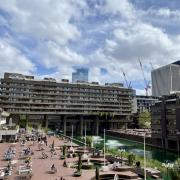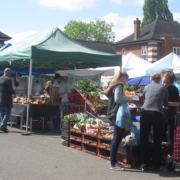
It’s clear that stepping on the property ladder is becoming more and more difficult for prospective homeowners, but prejudice, xenophobia and racism have been obstacles faced by many people since long before the 2008 financial crisis. I spoke to a Walthamstow homeowner-who migrated to the UK from East Africa in the early 1991-about his experiences during the process of buying a house.
What was the process of becoming a homeowner like for you?
I started looking for a house in 1997 a few months after I married my wife. I started by looking around for people who could help me with finding a mortgage. At first I went to some mortgage advisors- some quoted me very large fees for their advice and some just didn’t seem to think I could afford a mortgage just by looking at me and almost brushed me off.
Do you believe you were specifically targeted with higher fees simply for your appearance?
I don’t think so, but the fees were definitely not affordable for me. However, the mortgage advisors who did offer their services at more reasonable fees did seem to want to discourage me from buying a property from the beginning, whether it was because of the colour of my skin or my accent and had a negative perception at face value, without even knowing about my employment status or social situation. All of this was before I even went to the estate agents.
What happened next?
I eventually decided to go to my bank-bypassing the independent mortgage advisors- I did a lot of research in brochures and was eventually told how much money I could borrow, and I was happy with that. I then went to the estate agent to find an appropriate property. They showed me a number of houses and didn’t question whether I could afford a mortgage- unfortunately my wife and I didn’t really like any of the properties. We went to another estate agent, who said they’d try to find us a house. When I visited the insurance advisor at their office, he asked me about my citizenship status outright, simply by looking at me- it was not possible to buy a house from them without life insurance. After calling his manager, he mentioned something about me being a ‘mobile trader’ as if to imply that I was not settled enough to secure a mortgage. I thought this was inappropriate and felt disappointed because their job was to simply get me insured and to find me a house. I asked him ‘if I’m not a British citizen, does that bar me from buying a house?’ and he said ‘no’, so I asked ‘are you sure?’ and his answer was ‘positive’- I was very frustrated at this point and just left. I remember seeing a property that I actually liked-and eventually bought-at that estate agent. Following another visit to the bank, I secured the mortgage. I went back to the estate agent and asked again: ‘can I buy this house now that I’ve got a mortgage?’ and he could not refuse at that point. I got him to call the seller of the house after we had a viewing and eventually, he called me back saying: ‘I’m sorry but you can’t by the house’ I asked why, and he simply said ‘the seller doesn’t want you to buy it’, without any sort of explanation. I was almost forced to offer £500 more than the asking price as my wife and I really had our hearts set on that property. Clearly, the other potential buyers were not willing to go above this, as our offer was accepted. I went to my solicitor and after that, the whole thing was processed very quickly. However, it wasn’t very easy, from the beginning of the process. I was judged on things that really have nothing to do with my ability to buy a house.
How did the whole process make you feel?
I felt disappointed. It was the first time I faced blatant discrimination.
Do you know anyone who had a similar experience?
I have a friend who went through almost the exact same thing. He said that the whole process was difficult due to face-value discrimination.
Why do you think similar situations are so common?
It’s really about what has been built into people’s attitudes. In some ways its due to ignorance- people simply don’t feel that people of colour should have the rights that their white counterparts do. The reality is, that if someone can afford to buy a house, they should not be limited by someone else’s ignorance or a lack of awareness.
Do you believe that things would have been different if you were purchasing a house today and do you think gentrification in areas such as Walthamstow is influencing the prevalence of such experiences?
I think gentrification in areas like Walthamstow may not fuel situations exactly like the one I faced twenty years ago, but in the housing market, I think discrimination probably exists in a different way. Now, people will be more discouraged by the affordability issue, which is indirect, but what I faced was direct. Properties in gentrified areas are becoming less accessible to minorities, who on average have less buying power. The situation is a little bit different.
What do you think must be done to stop this phenomenon?
I think the best way to tackle it is through a government policy on housing. There must be affordable social housing available to people and kept out of private hands- a mixture of private and public housing in all areas will be the answer. This way, people of all income levels will have the chance to climb the property ladder and not be pushed out of the city.
If you were to sell your house, do you feel that you will experience some form of discrimination?
In terms of selling, I don’t really think so- however, if I tried to move into a less diverse and more sought-after area it might not be affordable. I’m also not sure of how I may be received if I attempted to buy a house in an affordable but less diverse area- unfortunately, some resistance may be expected.
How diverse was Walthamstow when you bought your house?
I think it was getting more diverse, but the neighbourhood in which we bought the property was not diverse at all at the time. It definitely is now, but the demographic in Waltham Forest is changing again. What I’m seeing is less and less minorities in the area, and it seems like many minority families are moving out or aren’t moving in as much as they used to.


























